Emerald THE DAILY
MONDAY, FEB. 17, 2025
Homeless advocates allege EPD sweeps during freezing weather despite city policy


Homeless advocates allege EPD sweeps during freezing weather despite city policy

UO and campus clubs offer resources as immigration laws shift
President Donald Trump attempted to repeal birthright citizenship and simplify the deportation process during his first week in office, leading to mixed reactions and a rise in resources from the UO community
Atlas, a new Mediterranean spot, opens on 13th avenue
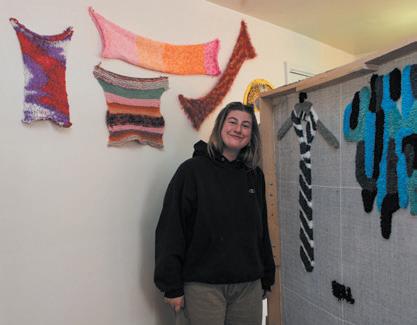
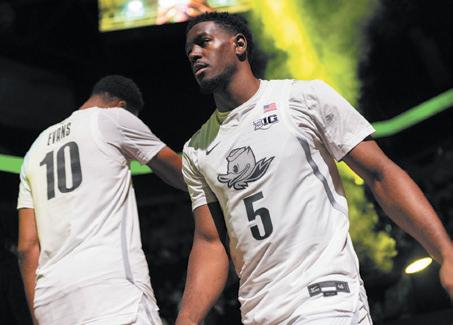

“ “ “I want (our club members) to live in a different universe, in a different world. I know sometimes we must check back to reality, but from my end and from my organization’s I want them to just feel safe, feel welcome, feel heard,” - Victor Cendejas, president of Latinx Male Alliance
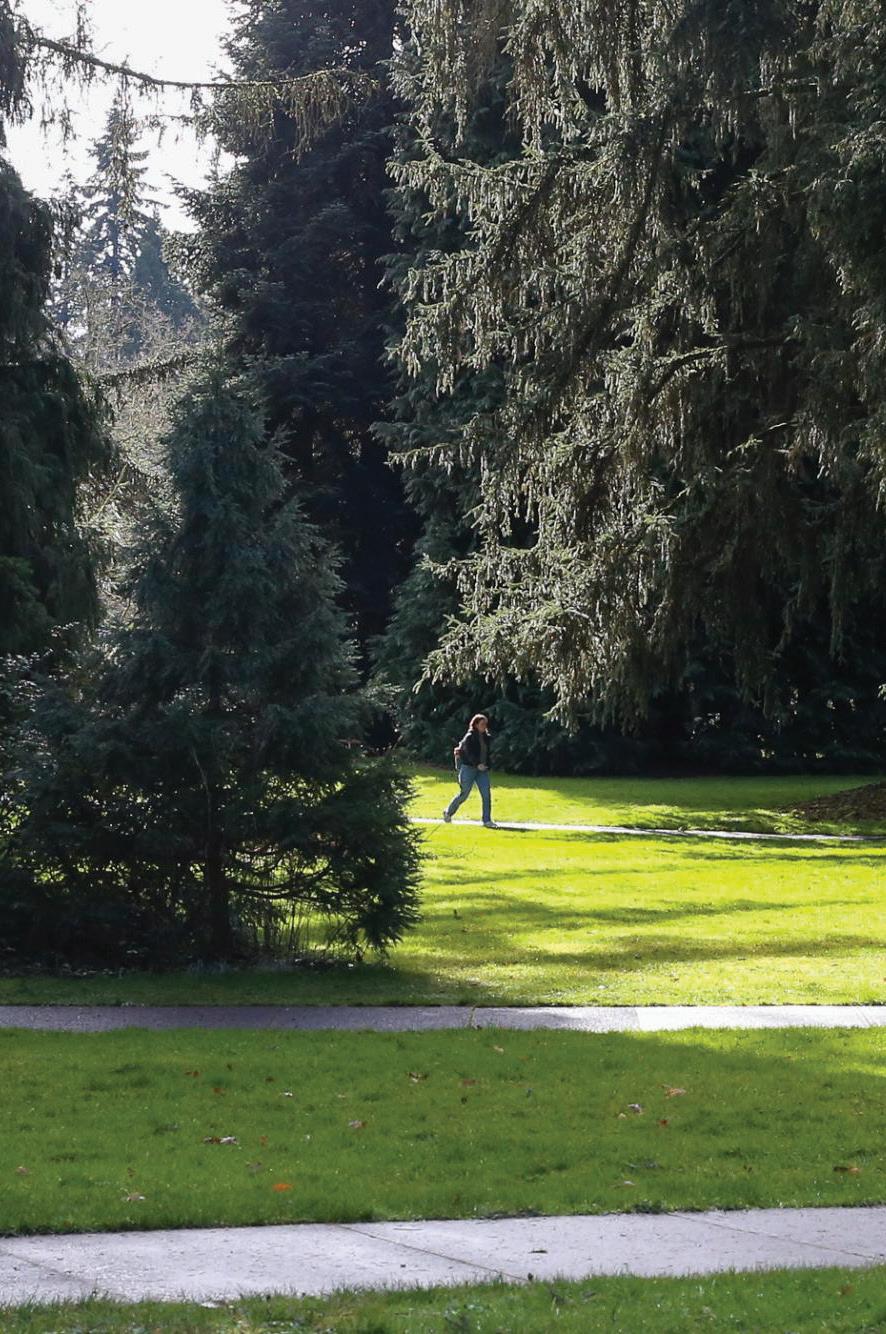
By Claire Coit Arts & Culture Writer
Looking for fresh Mediterranean food that’s locally sourced? Atlas might be your new lunch spot. Nestled between The Duck Store and The Webfoot, Atlas is a build-your-own bowl Mediterranean restaurant. The restaurant opened a month ago, and the team at Atlas aims to provide the campus community with fresh, healthy bowls and wraps, with endless routes for customization.
With modern decor and a fresh feel,
Atlas is a bright and welcome addition to the short list of dining options available near campus. Dave’s Hot Chicken and Jersey Mike’s are student staples, but some may be looking for a healthier option after a stressful midterm or before a night out.
One of the most appealing things about Atlas is its commitment to fresh and local ingredients. Their pita breads are made in-house — pressed and baked right behind the counter, coming out fresh for customers. They also make all of their dressings and hummuses in-house, with interesting
By Bella Bishop Campus News Reporter
As part of an initiative through the University of Oregon Safety and Risk Security department, UO’s emergency alert system will be going through multiple changes in the coming months. The changes will include updated security words and the removal of about a dozen emergency phone towers on and near campus.
In an effort to adopt a more universal and clear way of giving action instructions in the case of an emergency, the SRS has decided to revise some of the language, according to Krista Dillon, chief of staff and senior director of operations for SRS.
“It’s not a huge change. It’s just that you’re going to see some standardized language come out,” Dillon said.
According to Dillon, in the past, there has been some confusion surrounding the language used in emergency alerts. This confusion then results in the following safety actions to not be taken accordingly. Emergency situations often require immediate response, and the SRS acknowledged that by previously having unclear language, it is “difficult” for students to respond appropriately.
UO Spokesperson Eric Howald said a standard vocabulary is necessary to avoid future confusion.
“We (the SRS) are developing a standard vocabulary that will be used in the alerts to convey the









EDITOR IN CHIEF
Tristin Hoffman
PRINT MANAGING EDITOR
Mathias Lehman-Winters
DIGITAL MANAGING EDITOR
Alicia Santiago
CAMPUS NEWS EDITOR
Jasmine Saboorian
CITY NEWS EDITOR
Mathias Lehman-Winters
INVESTIGATIONS EDITOR
Tarek Anthony
A&C EDITOR
Jess McComb
SPORTS EDITOR
Brady Ruth
OPINION EDITOR
Beatrice Byrd
PHOTO EDITOR
Molly McPherson
COPY CHIEF
Olivia Ellerbruch
COPY EDITOR
Alex Woodward
VIDEO EDITOR
Kendall Baldwin
PODCAST EDITOR
Evan Giordano
SOCIALS EDITOR
Sydney Wolfe
VISUALS EDITOR
Noa Schwartz
DESIGN EDITOR
Sam Butler
DESIGNERS
Eva Andrews
Adaleah Carman
Gabriela Martinez Contreras
Ash Frieswyk
Olivia Hoskinson
Bella Lyon
PUBLISHER AND PRESIDENT
Eric Henry (X317) ehenry@dailyemerald.com
VP OPERATIONS
Kathy Carbone (X302) kcarbone@dailyemerald.com
DIRECTOR OF SALES & DIGITAL MARKETING
Shelly Rondestvedt (X303) srondestvedt@dailyemerald. com
CREATIVE & TECHNICAL
DIRECTOR
Anna Smith (X327) creative@dailyemerald.com
STUDENT SALES MANAGER
Lola Tagwerker
ACCOUNT EXECUTIVES
Cooper Gast
Elliot Byrne
Ysai Hong
Nate Ghilarducci
The Daily Emerald is published by Emerald Media Group, Inc., the independent nonprofit media company at the University of Oregon. Formerly the Oregon Daily Emerald, the news organization was founded in 1900.
While the fee is projected to generate $10 million annually, only $2 million will go toward expanding Eugene’s fire services. The remaining funding will help close the city’s $11.5 million budget deficit.
By Lucas Hellberg City News Reporter
T he Eugene City Council has passed the fire safety fee that aims to help close a projected $11.5 million general fund budget gap.
In a split vote at a Feb. 10 work session, councilors voted five to three to pass the fee.
City Councilors Jennifer Yeh, Eliza Kashinsky, Matt Keating, Alan Zelenka, and Lyndsie Leech voted to implement the fee.
“Our Fire EMS is very similar to a utility. It’s something we count on to be there every day,” Yeh said. “It cannot stop working.”
City Councilors Mike Clark, Greg Evans and Randy Groves voted against implementing the fee.
After a year of listening and collaboration, UO President John Karl Scholz introduced a decadelong plan to elevate student success, community engagement and global impact
By Stephanie Jersey Campus News Reporter
Emerald Media Group 1395 University St.,#302 Eugene, Or 97403 (541)-346-5511

In the fall of 2024, University of Oregon President John Karl Scholz announced the launch of a new strategic plan, Oregon Rising. Scholz and his team promised to achieve four goals over the next decade: enhance pathways to timely graduation, become a leader in career preparation, create a flourishing community and accelerate UO’s impact on the world.
The development process began in 2023, consisting of multiple facilitated sessions and an online survey. By the end of the year, 1,200 faculty, staff, students, alumni and stakeholders contributed input.



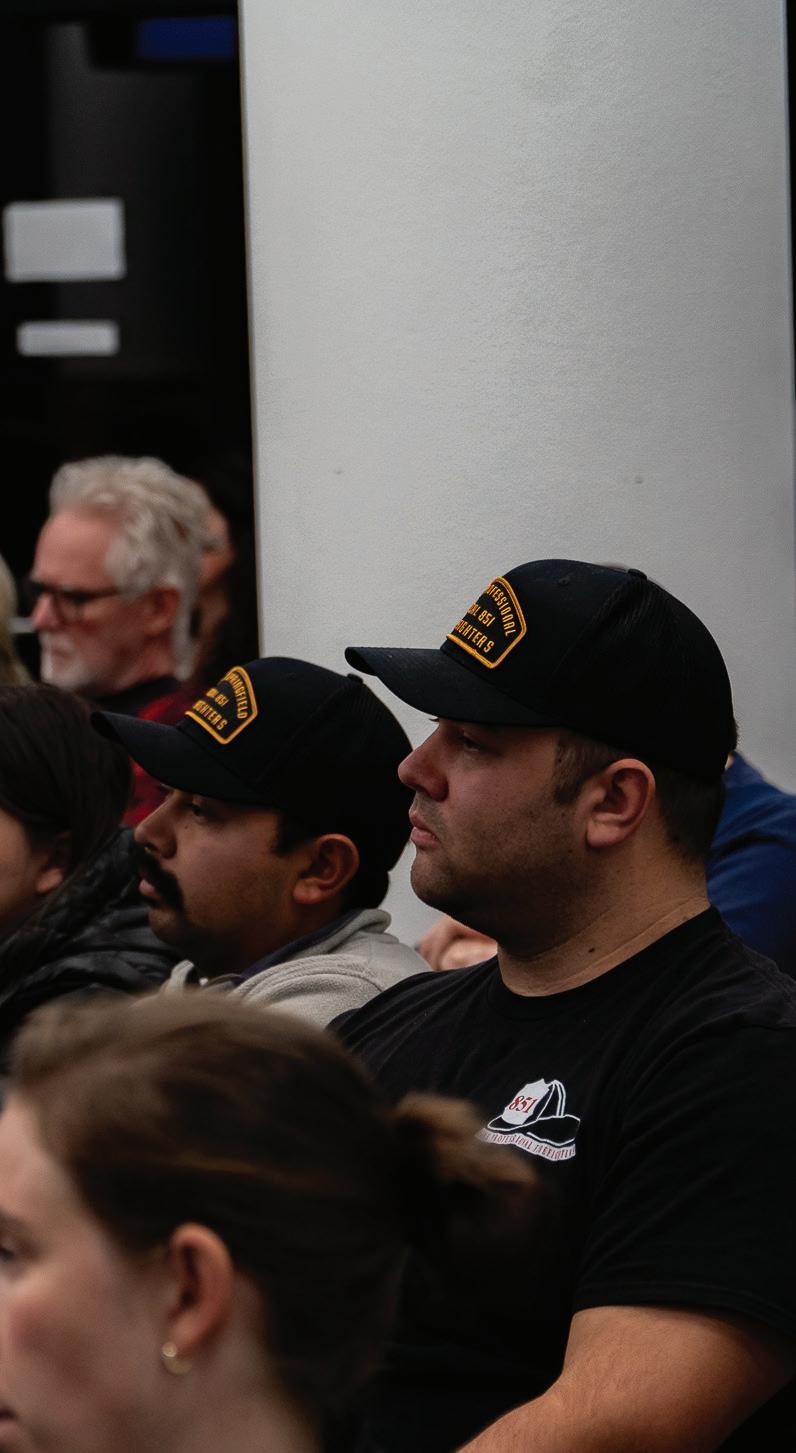
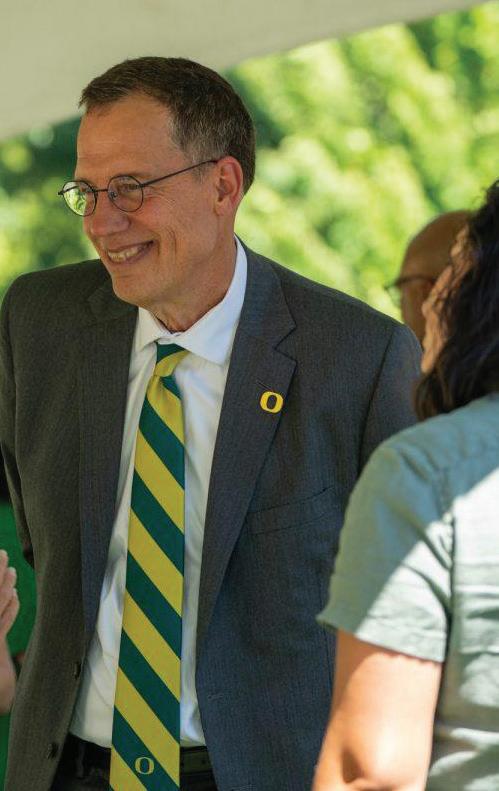




UO students should expect to see new key phrases and language implemented into emergency alerts, as well as the removal of about two dozen emergency phone towers around campus
actions (that need to be taken). We need a common vocabulary to avoid confusion,” Howald said.
According to Dillon, the SRS worked closely with UO Police Department Chief of Police Jason Wade, who is the original author of the new language.
According to Dillon, the SRS team also derived methods from the “I Love U Guys Foundation” that focuses on training programs for standardized protocols in emergency situations and from other peer universities in the Big 10 network.
Additionally, Dillon said that the SRS considered feedback from the Associated Students of the University of Oregon until they tentatively landed on six key phrases that will be adopted into the UO alert messaging: Be aware - Make sure to stay alert of your surroundings.
Evacuate - If you’re in a building, you need to go outside.
Shelter - If you’re outside, you need to go inside.
Avoid (the area) - Something is going on
in the area and either it’s unsafe for people to be around, or officials need to respond and need people to stay away from that space.
Run/Fight/Hide - (for active threat situations) Each person’s response will depend on their scenario.
Lockdown - (mostly used in an active threat situation) find a secure location to remain in until the threat has been diffused.
The SRS and UOPD plan to remove about two dozen emergency towers “probably by summer of 2026,” Dillon said, due to maintenance costs and lack of use.
These emergency phone towers offer 24/7 access to emergency services dispatched to UOPD.
According to Dillon, the towers have been on campus for nearly 30 years.
Dillon also said there were initially 63 of these emergency towers across campus until the summer of 2024 when the SRS took out about a dozen, bringing that number down to 53.
Now, because many of the towers are
Black Thistle Street Aid claims that EPD slashed tents, leaving people experiencing homelessness exposed to cold
By Jess Coronado City News Reporter
A local advocacy and outreach organization claims the city’s alleged ongoing response to people experiencing homelessness is against their cold weather policy. Advocates claim authorities have slashed tents and destroyed belongings.
Volunteers from Black Thistle Street Aid, a nonprofit that provides services to people experiencing homelessness, have been speaking out about city workers and the Eugene Police Department’s alleged “violations” against their cold weather policy.
“None of these people were committing any crimes besides simply existing in a city that doesn’t make it legal for them to exist. If you don’t have housing, that’s the biggest crime, really,” BTSA Co-Director Bridgette Butler said.
BTSA’s volunteer teams conduct outreach services every Wednesday. Butler said that in the past two weeks, they have heard multiple reports from people experiencing homelessness of sweeps during freezing weather.
BTSA encountered one person who was
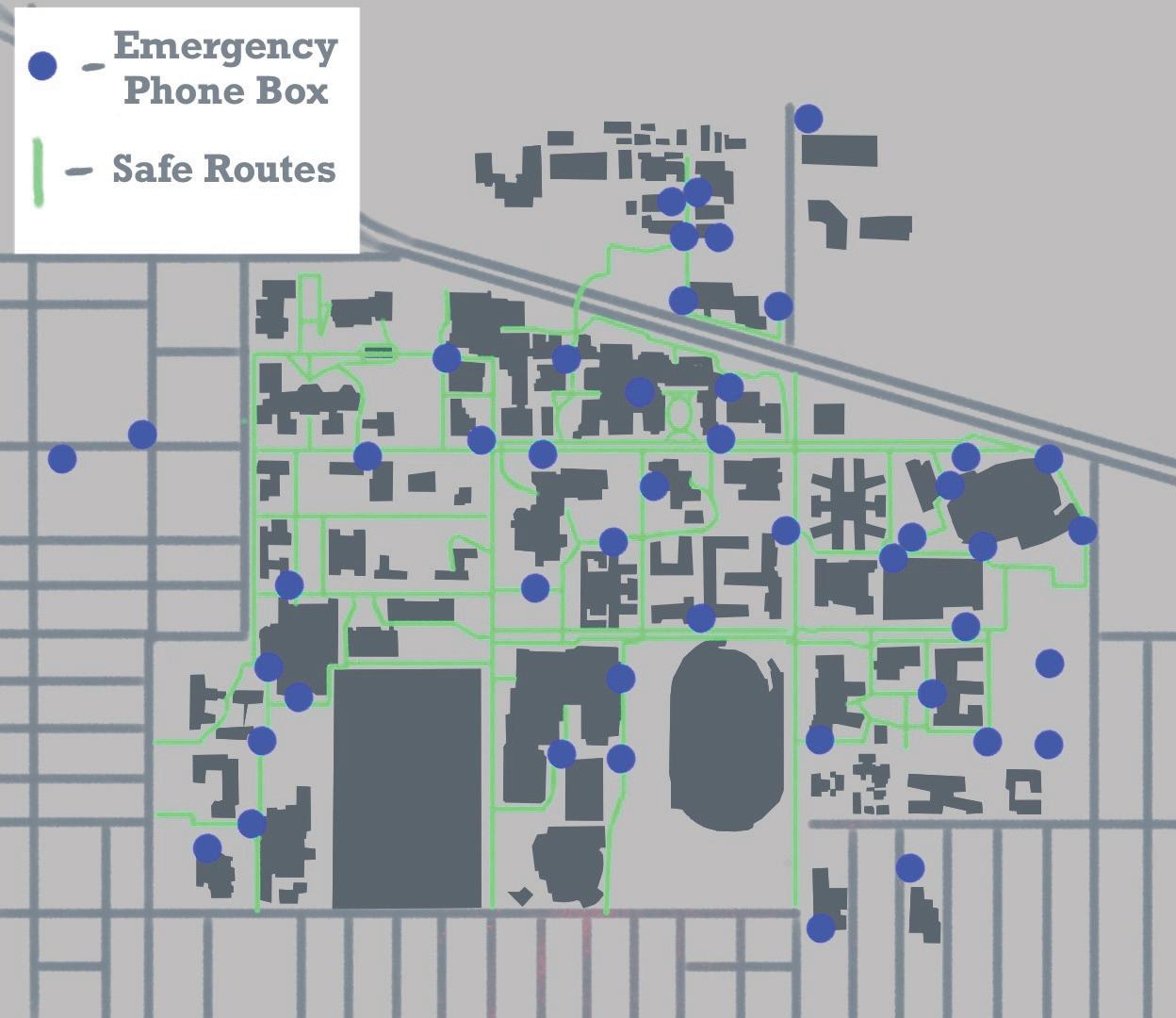
“dying,” the SRS will be cutting the total amount down to 28 “in key locations.”
“We (SRS) are starting to see those older phones kind of come to the end of their lives, and unfortunately, there was never any maintenance budget (for them),” Dillon said. “The worst thing that we could do is have one (emergency tower) out that doesn’t work, right?”
Wade said that oftentimes these towers are misused, or that sometimes, “someone pushes the button to see what it does, or someone’s, you know, having a little fun at our expense.”
The SRS is working diligently with ASUO to formulate an outreach campaign for the changes to both the alert system and the emergency tower reductions.
“The next step for us is to do an outreach campaign in which we are engaging ASUO to help us make sure everyone understands the language and… know(s) about this (emergency tower removal), because they’re used to seeing them, and we don’t want people to be surprised if they start to go away,” Dillon said.
experiencing symptoms of frostbite. Butler said this person was at an encampment where EPD visited hours earlier for eviction and “slashed” tents and destroyed unhoused campers’ property.
“None of these people were committing any crimes besides simply existing in a city that doesn’t make it legal for them to exist.
- Bridgette Butler, BTSA Co-Director “
According to EPD Public Information Officer Melinda McLaughlin, authorities are not typically involved in the clean-up of tents, but their presence is to deal with safety or criminal enforcement. If they encounter biohazards or substances that can harm people, they will get involved and cut the tent.
According to Amber Allan, housing and homeless communication manager for the City of Eugene, the current cold weather protocol states that during extreme cold weather, “the City of Eugene may pause or otherwise

alter its process for assessing reports of unsanctioned camping in public spaces.”
Extreme cold temperatures are defined as at or below 32 degrees that persist for more than four hours.
Allan said cold weather protocols do not stand when a person is camping on private property.
“It didn’t use to have all those details, but they basically made it one giant loophole where they can keep sweeping people regardless of weather,” Butler said.
Current Oregon law states that unclaimed personal property after sweeps must “be stored” unless they have been deemed to have no “apparent value or utility or are in an unsanitary condition.” Items that are stored are kept in storage for a minimum of 30 days.
“That’s not the first instance of tents being slashed by EPD that we’ve heard,” Butler said. “Last Wednesday the other team, the ones that saw the sweeps, talked to a person earlier that day who also said his tent was slashed.”
Butler said there was a change in the
language of the city’s cold weather policy which used to state the city would not “post unsanctioned camps with removal notices” or “remove campsites previously posted.”
Jason Davis, Lane County’s Health and Human Services Communications Director, said he was aware of the change, but the only thing that changed was the “formatting.” Davis said if the city changed the main criteria for the protocol, the county and HHS would have been notified.
“We plan to continue to be a thorn in their side,” Butler said. “Slashing tents in general should not be a practice of police, but most especially in evenings and freezing temperatures when to do so is potentially deadly and a person has no chance of replacing the item.”
The Daily Emerald attempted to contact those whose tents were allegedly slashed but was unsuccessful in reaching them due to their lack of a phone or other contact method.
UO Office of Legal Counsel can help inform you on situations where immigration information is requested. More information is available on their website.
UO Director of Multicultural and Identity-based Support Services, Justine Carpenter can help UO students renew their Deferred Action for Childhood Arrivals (DACA) documentation for little to no cost.
Carpenter also connects students with immigration attorneys for free. Call Carpenter at 541-346-1123.
Equity Corps of Oregon, a state-funded program, can also help Oregonians attain an immigration lawyer for free.
UO Dreamers Working Group trains staff and faculty to assist Dreamer students as Dreamer Allies. Email uodreamers@uoregon.edu and follow @uodreamers on Instagram.
The Oregon Department of Justice website clarifies Sanctuary State Laws.
You have the right to remain silent.
You have the right to a lawyer.
You must show your papers if you are not a U.S. citizen.
You have the right to refuse a search unless there is a signed warrant by a judge. This right is guaranteed by the 4th amendment.
Find more information on the American Civil Liberties Union website.

By Stephanie Hensley and Sasha Love Campus News Reporters

On Jan. 20, Trump signed an executive order repealing birthright citizenship and an order permitting Immigration and Customs Enforcement and Customs and Border Protection in schools and churches, previously regarded as “sensi-
In response to the executive order regarding birthright, attorneys general from Oregon, Illinois, Washington and Arizona filed a lawsuit to block the executive order, saying it violated the 14th amendment.
In interviews with the Daily Emerald, some University of Oregon students and campus clubs expressed concerns for themselves and their families amid uncertainty of changing policies and interpretations of the constitution.
Originally from Roseburg, UO student John Silva is the child of two Mexican immigrants who came to the U.S. over 20 years ago.
Silva said that while the executive order to end birthright citizenship doesn’t directly impact him, it’s “disheartening” to hear how it might affect immigrant families, including his own.
“Never in my life have I had to have that conversation with my parents about what they would do if they were to be deported,” Silva said.
“But now it’s been more of ‘Hey, what do I do? What do I do with your belongings?’ It is a little bit worrisome, and the only thing I can do is really be optimistic and hope that it doesn’t happen.”
Maria Gaspar, president of the UO chapter of Movimiento Estudiantil Chicano de Aztlán, works to connect students with UO Dreamers Working Group, which helps students with scholarships, DACA documentation, counseling services and more.
According to Gaspar, MEChA is also a gateway club for members interested in joining affiliate clubs, including UO Muxeres and Latinx Male Alliance.
“(MEChA’s) culture is really based on community, and I think that providing that community in a space where maybe there’s not a lot of (immigrant students) is really important, especially so that we can create that presence on campus (and say), ‘Yeah, we’re children or friends or loved ones of immigrants (and) we stand in solidarity,’” Gaspar said. Amidst Trump’s orders, MEChA also posted “red cards” on their instagram and encouraged people to
The red cards display instructions on what to do if someone is searched or questioned by ICE or CBP.
Gaspar said she hopes UO students utilize the red cards or share them with friends and family who may be at risk for deportation.
“I think that for people that maybe are unsure of what to say in situations (with police and immigration authorities), it’s really helpful to carry (a red card) around. Even if maybe you won’t be the one using it, it’s good to have for anyone (who) might need that resource,” Gaspar said.
Oregon is a “sanctuary state,” meaning local law enforcement cannot assist federal officials with enforcing immigration unless a judicial warrant is signed. According to the Oregon Department of Justice, sanctuary promise laws also prevent local officials from requesting or sharing the immigration status of residents.
According to Victor Cendejas, president of LMA, the club partnered with MEChA to discuss and interpret current political events with club members.
“(Changing immigration policy) sucks for undocumented people (who are) just scared to do what they wanted to do here in the United States, which is just keep going in life and have their kids, you know, be successful,” Cendejas said.
Cassidy Perkins, president of UO College Republicans, said that President Trump is only trying to stop birthright citizenship because “the rate of immigration is exceeding our birth rate.”
As of 2024, the birth rate for the U.S. was 3.2 million babies born, according to the Center for Disease Control. However, 818,000 immigrants were naturalized last year, seeing a 7% decrease in naturalization rates from 2023. In total, 2.3 million people have immigrated to the U.S. in the past three years, according to the U.S. Citizenship and Immigration Services.
“What President Trump is trying to target in (his executive order) is people who come over to the United States on a visa,” Perkins said. “And then they have, I’m sure this is probably considered an offensive term now, but an ‘anchor baby,’ for lack of a better term, which is just to give them the chance to stay in the United States.”
Perkins added that while she is not an expert on immigration law, she believes that “discomfort is usually our first step toward a positive change.”
In response to shifting immigration policy, UO launched a resources website in January 2025. The site models a version made in 2017 during Trump’s first term.
According to Dennis Galvan, dean and vice provost of Division of Global Engagement, the university will post updates on the site, connect students with immigration attorneys or renew their DACA for little to no cost.
“Systems are in place for people, and it’s just a matter of realizing that there are moments in the life of any campus where change comes a little faster and everybody’s a little bit
“
Never in my life have I had to have that conversation with my parents about what they would do if they were to be deported
- John Silva, UO Student “
more stressed out,” Galvan said. “So I think we’ve got a whole system ready to receive that energy and do our best to help students.”
Despite these efforts from the university, Gaspar said she still feels like UO is “not addressing anything” to support campus minorities.
Amid these developments, UO and other campus organizations continue to provide resources to help students navigate the current political landscape. According to the Pew Research Center, Oregon is home to approximately 120,000 undocumented immigrants. Over 9% of the state's population is made up of foreign-born
“Know your rights”
You have the right to remain silent and do not have to discuss your immigration or citizenship status with police, immigration agents, or other officials. Anything you tell an officer can later be used against you in immigration court.
If you are not a U.S. citizen and an immigration agent requests your immigration papers, you must show them if you have them with you.
If an immigration agent asks if they can search you, you have the right to say no. Agents do not have the right to search you or your belongings without your consent or probable cause.
If you’re over 18, carry your papers with you at all times. If you don’t have them, tell the officer that you want to remain silent, or that you want to consult a lawyer before answering any questions.”
Information
Delivering bold flavors and fresh ingredients, Atlas brings something new to the campus area
options like red-pepper walnut hummus and yam vinaigrette.
The owner of Atlas, Gabe Garboden, has com mitted to sourcing ingredients locally and making them as fresh as possi ble for custom ers. Without a freezer on-site, Atlas serves fresh ingredients only, making their menu stand out amongst other local restaurants.
“We wanted to make a really fresh, locally-focused menu,” Garboden said. “We work with as many local vendors as we can. It’s tough with seasonality and our menu, but when things are in season, we try to keep our ingredients local as possible. Our tomatoes, for example, are one of our highest local items.”
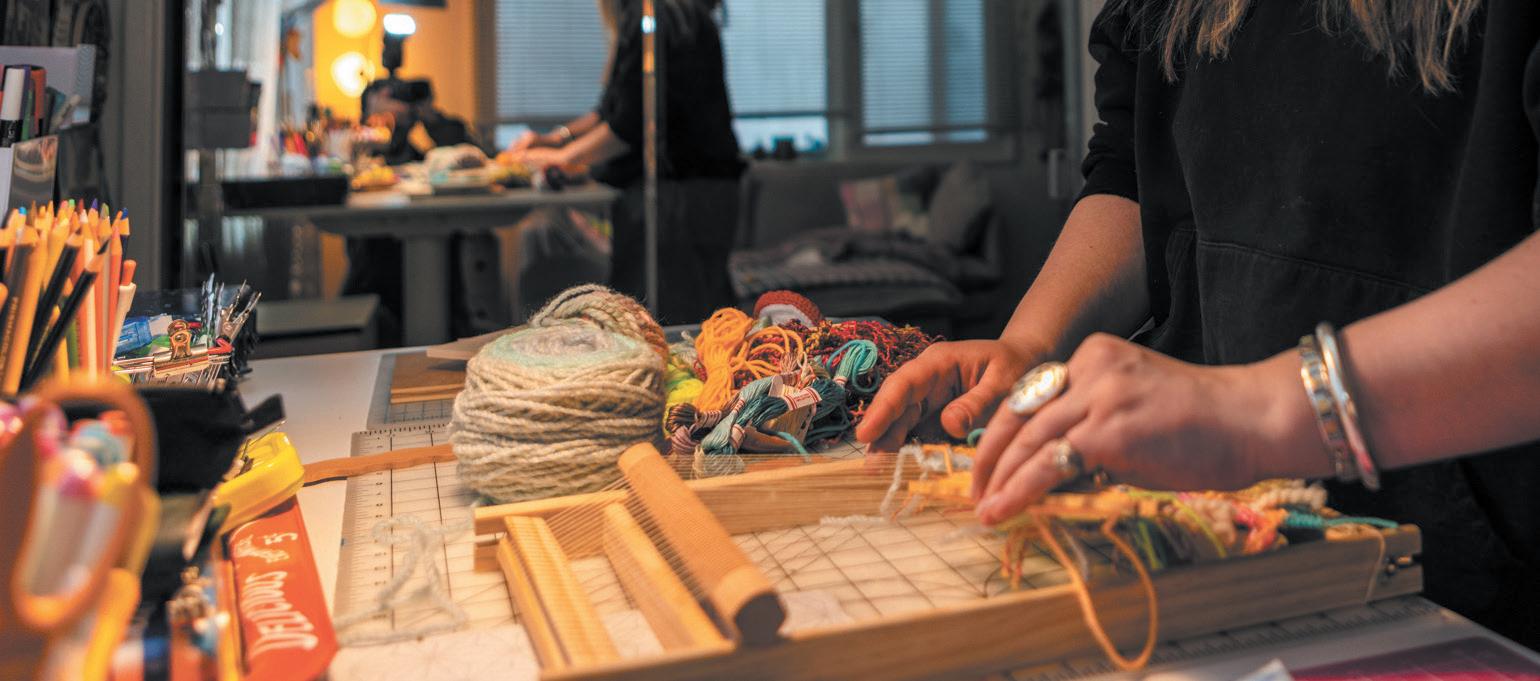

The menu features a variety of choices. Start with a pita or bowl, choosing between greens, grains or both as a base. Then, pick between four protein options: grilled chicken, harissa steak, sweet and spicy chicken or falafel.
Next, hit the veggies. At Atlas, you can add as many veggies as you want, free of extra charge. They offer a large variety of Mediterranean vegetable options, including corn, fresh cucumber, colorful tomatoes and even artichoke. Finally, choose from a variety of dressings to finish off the bowl or pita wrap.
Atlas also features a few bowl and pita recipes on their menu, pairing specific ingredients together for a certain taste. Garboden recommended Atlas’s new Falafel Harvest Bowl. With falafel, mixed greens, brown

rice, red-pepper walnut hummus, red onion, corn, pepperoncini, goat cheese, yam vinaigrette and cilantro, the bowl and pita recipes are full of flavor and variety.
When asked why he chose Mediterranean cuisine for his restaurant, Garboden said, “I think it’s a cuisine that a lot of people don’t have a lot of experience with. It’s also an area that hasn’t seen this kind of restaurant. We’re hoping to change that.”
Prices are reasonable for a student demographic, running between $1215 a meal. For the liberal portions and fresh ingredients, stopping by Atlas is well worth it. Students who are looking for fresh, healthy food need look no further than right at the top of campus on East 13th Avenue at Atlas.
( ABOVE) Atlas’ Harissa Steak Bowl.
(BELOW) Atlas’ manager prepares a customers’ custom bowl.
(Eduardo Garcia / Emerald)

In the first of a series of spotlights on student creativity, we look behind the scenes of Liv Ruth’s artistic journey
By Mark Munson-Warnken Arts & Culture Writer
In 2025, youthful visions of self-fulfilling work are blurred by family members, friends and internet celebrities telling you what to do and who to be. While moments of peace and self reflection are few and far between, when the pieces finally click together in times of repose, the path to the future gleams in the eyes of those who dare to dream. For 23-year-old University of Oregon student Liv Ruth, it took a gap year to reconnect with her creative roots and uncover her love for the hidden art of tufting. Ruth, who grew up in Pennsylvania, made the journey out west haunted by ghosts of conformity dressed in Lululemon. While her father was a prominent multimedia artist with a gallery in the basement of her childhood home, Ruth opted toward traditional Pennsylvania past-times like lacrosse.
“I literally wrote my college essay on lacrosse and how it was my entire identity. I toured University of Oregon to play D(ivision) I lacrosse and that was my life,” Ruth said. “Once I decided not to go down that path, I was really lost.”
The loss of her sport weighed on her, but as a young college student immersed in the breakneck pace of American culture, she felt the pressure to make a decision. Following a period of uncertainty as she pursued education and occupied her free time with sorority life, she found her way back to art.
“I didn’t really get into art until I started going here. Honestly, I was really struggling in my regular classes, like education classes,” Ruth said. “I’ve always liked art, so I started doing really well in my art classes and just kind of went with it.”
The loss of her support system when she switched into art classes was a blow which led to an impromptu gap year. But, a step back to reassess can lead to a clear and streamlined path forward, and for Ruth, the year spent at home gave her time to realize her distaste for the hustle of the East Coast.
“Being back home has definitely made me appreciate living here a lot; it’s just so much more vibrant. People are so much more kind, and have a slower way of living,” Ruth said. “I really try to incorporate that into my work. I feel like now it’s part of my life too, and I just love the change of pace.”
For Ruth, her passion for the slow and labor intensive process of tufting was inspired by watching a video her dad sent her of a rug being made.
“He randomly sent me a rug tufting video one day and I thought, ‘I’m just going to do it,’” Ruth said. “I bought all the equipment and spent the year learning while I was working.”
As she continued building, she began to increase the complexity of her designs and found her distinct creative voice.
Her first rug, a depiction of the Peanuts character Snoopy embracing Woodstock, proved to be the first in a line of wholesome motifs. For Ruth, a multimedia artist, Peanuts-inspired designs have been a recurring preference across mediums. The show, a favorite of her mother’s, has occupied a special space in her mind’s eye since she was a child.
“My mom wore this little Lucy pendant, and I’ve just always been staring at that,” Ruth said. “I mean, how many times do you look at your mom growing up, so when I think of my mom’s face, I think of the pendant.”
Such heartfelt presence can be felt across the breadth of her portfolio, due to her imagery and color palette. Scrolling through her Instagram it’s hard not to be engrossed by the neon colors which evoke thoughts of the Grateful Dead and ‘50s surf rock culture.
The colors she opts toward are beautifully psychedelic, but Ruth admitted her color palette has much room for improvement. “I’m really scared of using black, gray, brown and any neutral colors,” she said.
With Ruth feeling more invigorated than ever to continue pushing the limits of her artistic capabilities, largely in part to her new community on campus and within the greater tufting community, the sky’s the limit.
( ABOVE) Liv Ruth, a Philadelphia-born student-artist based in Eugene, explores nature and color through an ever-evolving practice that spans fiber, digital, mixed media, and film. Here, Liv is working on a frame loom to produce a tapestry-woven structure.
(BELOW) “ERUPTION,” a 27” x 26” fiber piece created by Ruth.
(Max Unkrich/Emerald)

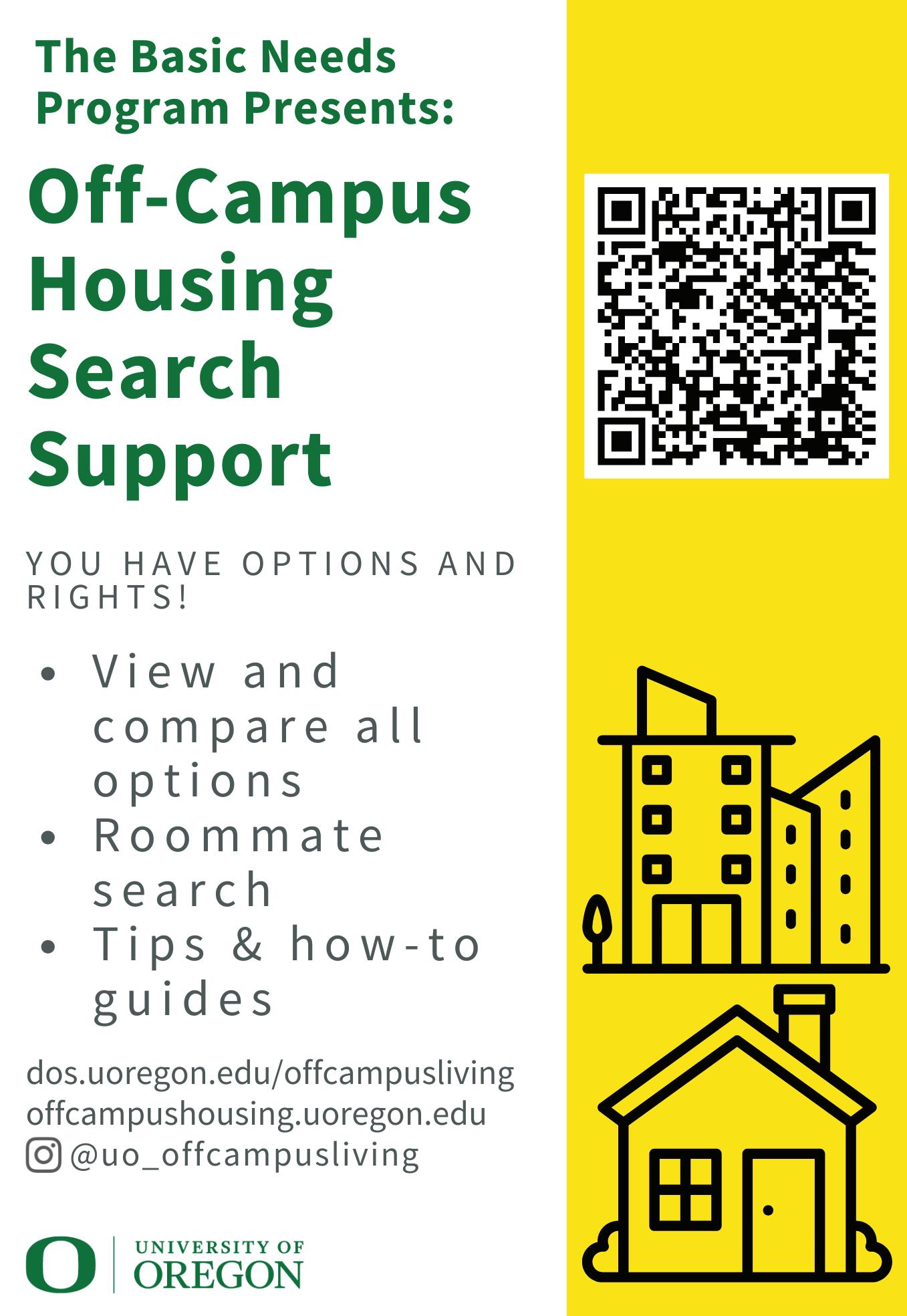




After a brief setback the Ducks were back to their winning ways early Friday morning
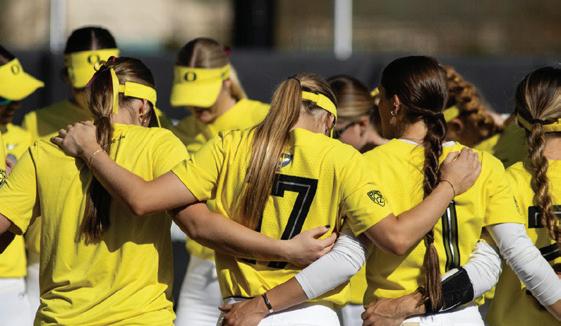
Oregon women’s tennis struggles in singles play in 4-3 loss to Arizona State

Where does the
fallen off a cliff.
By Joe Krasnowski Sports Reporter
Weeks after it was declared that teams with an early-season résumé such as Oregon’s almost never miss the NCAA Tournament, everything that “almost never” constitutes has seemed to happen.
With six games left in the regular season, Oregon (17-8, 6-8 Big Ten) entered Tuesday night’s (85-71 ) win over Northwestern in a three-way tie for 11th in the conference, one game ahead of the Wildcats and the current cut line for the Big Ten tournament. Oregon entered Tuesday’s contest having dropped five in a row following road losses to Michigan and Michigan State, and needing more quality wins to continue boosting its case for the postseason.
It didn’t have to be this way.
After storming out to a historic start — Oregon was 9-0 with multiple ranked wins and ranked in the top 10 in NET rating — the Ducks have
“There’s just not one area that we have been sharp in,” head coach Dana Altman said. “And it varies from game to game.”
Since that remarkable start — one that seemingly destined Oregon as a shoo-in for the NCAA and Big Ten Tournament — the Ducks have struggled mightily in conference play.
Oregon has also found new ways to lose, one of which included a brutal 14-point blown lead loss at Michigan.
“We haven’t been sharp,” Altman said of his team’s recent struggles after practice. “We haven’t jumped from game to game… we knew it was going to be our tough stretch when I got the schedule. We knew we were going to have four or five on the road and we would have a lot of trouble. We just didn’t get it done, and that’s as blunt as I can be.”
CBSSports.com’s Jerry Palm has the Ducks as a No. 7 seed and ESPN’s Joe Lunardi mocked Oregon
In our society’s workplace of “personal connections,” nepotism is an inevitable but very nuanced aspect of our culture
By Claire Nowicki Opinion Columnist
“Nepotism” is most commonly used for celebrity headlines of “nepo babies” and big names like the Kardashians, but it’s found everywhere.
The line between nepotism being labeled as “good” or “bad” is blurry. Some industries produce stars with incredible talents all thanks to the expertise they learned from their parents, but when people are given certain job privileges just because of their last name instead of their credentials, it can feel like an injustice.
Nepotism remains a stark reality, and you may benefit from it without realizing it.
Where do we draw the line?
Cambridge Dictionary defines nepotism as “the act of using your power or influence to get good jobs or unfair advantages for members of your own family.”
To me, “unfair advantages” could mean knowledge.
For example, being part of a military family made me acutely aware of how military benefits work and how our government functions. My dad always pushed me to look into federal work because there are many positions with robust benefits. As
to be a No. 7 seed before its last two losses continued to sink its odds.
Altman’s teams are historically known for gearing up for late-season runs. But between a struggling bench, a lousy defense and a team with questionable intensity, this year’s team is also full of unique issues that likely will derail any late success. With that in mind what will happen over the next couple of weeks seems to be anyone’s guess.
Oregon’s best résumé-boosting win possibility comes at Wisconsin (NET rating 15) on Feb. 22 in the team’s last regular-season chance for a win against a no-doubt NCAA Tournament team.
“We’ve just got to fight through it and find a way,” Altman said.
(RIGHT) Oregon forward Brandon Angel (21) hangs off the net.The University of Nebraska–Lincoln Cornhuskers defeated the University of Oregon Ducks 77-71. (Miles Cull/Emerald)
a political science student with this background, I know that would be a career path worth exploring.
For me, this is common knowledge, but for most people, federal work may not ever occur to them without it.
I’m not saying being a military kid didn’t have its struggles, my dad had long deployments and we had to move every 2-3 years. However, because of this experience, I have information in my back pocket that I can use to my advantage.
Is this nepotism?
The idea of “making connections” with people in the workforce is so prioritized because the more people who know your name, the more likely you are to be thought of for a position.
StandOut CV reported that “70.2% of people we surveyed said they had been given a contact, interview or immediate job via a personal connection.”
These highly sought-after “personal connections” are what recipients of nepotism already have by birthright, yet we seek out organic connections unashamedly to advance our careers.
I asked our students what they think about nepotism.
Faolan Adams, a senior at University of Oregon, voiced that she witnessed nepotism when a superior hired a family member at her workplace. She said, “It felt like it was serving several people’s personal gain and wasn’t necessarily the best solution for the organization as a whole.”
However, Adams noted that as a political science student interested in working in policy, her dad has worked in several government positions and has given her advice on where to explore careers.
“It’s not that I’ve necessarily been given opportunities because of that relationship, but it does feel like I have an informational advantage,” Adams said.
Ugonna George Silva, a first-generation student-athlete and also a senior, shared that many student-athletes have parents or relatives who are also athletes (either currently or in the past).
When it comes to the athletic industry, Silva said, “It would have been easier if I had someone to
WEDNESDAY
Feb. 19, 2025
Oregon vs. University of Nebraska
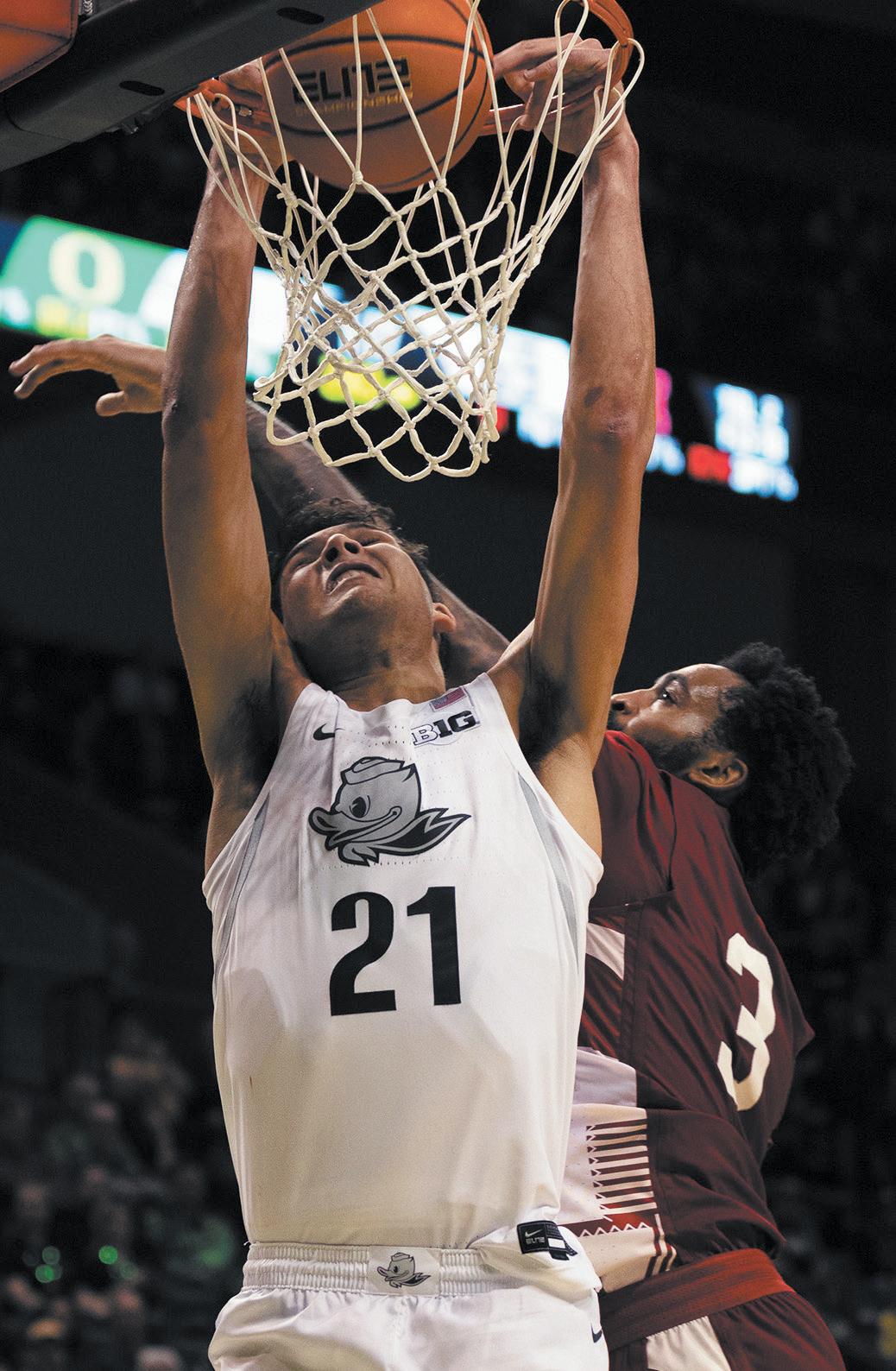
tell me what to prepare for. I had to do it through trial and error; it’s harder than somebody whose dad played and can tell them what to do.”
Silva added, “I don’t feel like it’s bad at all, but it’s for sure an advantage.”
It’s also an inevitability.
Nepotism can show itself in many ways, and its more subtle forms are not talked about as much.
Families preparing their children for their future — with the knowledge they’ve accumulated about an opportunity their child is interested in — exist everywhere and at every level, professional or otherwise.
So, before you go on a rampage about how Bronny James and Lily-Rose Depp are nepo babies, just remember you probably have smaller-scale privileges of your own that you may dismiss because they benefit you.
Adams put it perfectly. She said, “Nepotism is perhaps appropriate if your kid is the most qualified in the room and goes through the proper channels, but if they’re not and they still get the job, that’s when you need to think if it was right or not.”
Don’t waste time wishing you had an advantage someone else was born into. It’s not fair, but that’s just life.

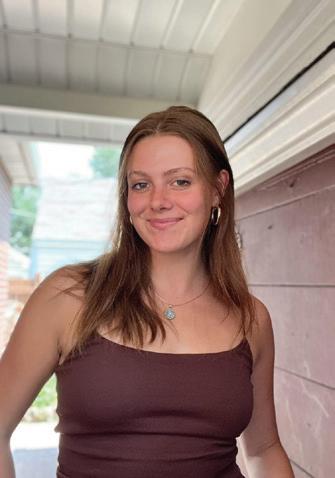
Claire is an opinion columnist for the Daily Emerald. She is in her final year at UO, majoring in political science and comparative literature. Her work focuses on government, philosophy, and literature.
